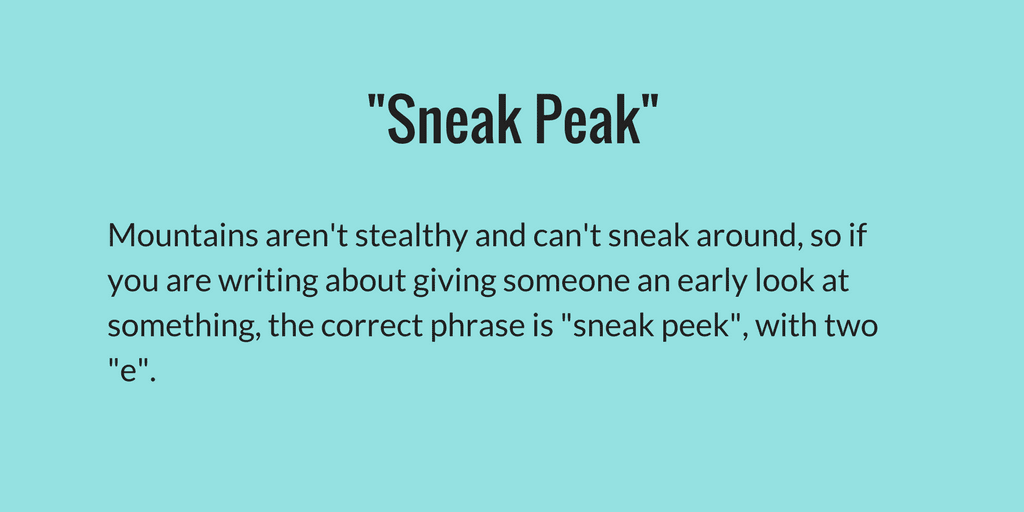There’s No Such Thing as Common Sense, and There Never Was


Let’s start with the comment that set me off. Felix Torres left a comment explaining that:
It used to refer to a minimum level of rationality that could be expected from an adult, based on things that are common knowledge: things like not going surfing in hurricane weather or sticking a finger in a light bulb socket.
Darwin awards prove how uncommon it has become.
My problem with his explanation is one, the assumption that common sense is any less common today than it was a hundred years ago, and two, the assumption that anything described as common sense is true or correct.
I’ll address those in reverse order.
Many people share the assumption that a common sense saying must be correct, but based on how I have heard the term used that simply isn’t the case. Here’s my understanding of the meaning and use of common sense.
In my experience common sense is and always has been a synonym for "the assumption of shared culture or knowledge". Or as the apocryphal Albert Einstein saying goes, "Common sense is the collection of prejudices acquired by age eighteen."
When the term common sense is used, it says nothing about the topic at hand and instead merely indicates that the speaker is assuming something to be both true and common knowledge.
What is assumed to be true can range from factual info (such as math or geography) to best practices, urban legends, or possibly racist/sexist/bigoted assumptions like "it’s common sense that all blacks/women/gays/ethnic group are (blank)".
I came to this revelation when a forum I used to help run was discussing whether to ban shortened URLs. One person said that it was common sense that you can’t trust the shortened URLs, which is simply nonsense. They’re used all over, and the only time they’re not safe is when used by a malicious actor.
That person had simply assumed it to be true, when in fact he had apparently never confirmed his assumption. This is why I immediately question any argument that ends with "it’s common sense".
In my opinion, "common sense" should be regarded as a logical fallacy, perhaps as a thought terminating cliche (a clichéd phrase in and of itself may be valid in certain contexts, its application as a means of dismissing dissent or justifying fallacious logic is what makes it thought-terminating).
That is how I see it used most often, and it is frequently followed by the lamentation that common sense simply isn’t as common as it used to be.
Speaking of which, it might surprise you to learn that regretting the decline of common sense is not a recent phenomenon; it’s a meme which dates back a couple centuries. Will Rogers is credited with saying almost a hundred years ago that "Common sense ain’t common", and half a century before that Horace Greely quipped "Common sense is uncommon."
So not only is common sense not common today, it never was. The only part of common sense which is actually common is the way its absence is noted, so much so that it almost exists in a negative space.
P.S. There’s about another 400 words cut from this post which expand on the timelessness of common sense as a meme, but I pulled it because I found the quotes I was going to use are as fake as the belief that common sense used to be more common in the past than it is today.
P.P.S. Do you know those quotes by ancient Greek philosophers lamenting about "kids these days"? They are most likely apocryphal.
image by cogdogblog


Comments
Barry May 30, 2016 um 9:36 pm
John Kenneth Galbraith used the term "conventional wisdom" to describe the stuff everybody knows, even though it’s often wrong or unverified.
I think another term that means something similar to "common sense" is "urban myth".
I find the idea of common sense to be useful in casual conversation but it really doesn’t have any place in serious discussion.
Barry
Irish Imbas May 30, 2016 um 9:55 pm
I’ve observed 'common sense' as meaning "people who agree with what I say". Generally, it’s something of a nonsense expression used to justify one person’s opinion.
Nate Hoffelder May 30, 2016 um 10:52 pm
I am biased in favor of my definition, but yours is just as good at explaining how the term as used in arguments.
author/reader May 30, 2016 um 10:10 pm
The term "common sense" apparenty originated in the 14th century to refer to a conclusion based on the five senses, the term used to make a distinction between people who reached conclusions based on the senses and people who reached conclusions based on no input at all, e.g., the insane and idiots. Soon the usage grew to include conclusions based on accepted ideas. For example, at one time it was common sense to say the Earth was as flat as a pancake, but when science demonstrated the Earth is a sphere and the demonstration was confirmed by ships sailing aroun the globe, it became common sense to say the Earth is a sphere. Of course conclusions based on the senses or on prevalent ideas can often be wrong, which means common sense may not be reliable. But on the other hand common sense can be indeed an accurate conclusion. If you see a man with a gun inside a bank and everyone else with their hands in the air, common sense tells you it’s probably a robbery. Probably. It may be a movie shoot.
author/reader May 30, 2016 um 10:20 pm
I should add that it’s not a good idea to say that common sense has no place in serious discussion. Einstein’s theory of relativity, his own popularized version of it, was based on common sense as he saw it. What he did essentially was take his common sense ideas and formulate them mathematically. His common sense ideas came first, they really did. The physicist Richard Feynman used a common sense approach to quantum electrodynamics.
Felix May 30, 2016 um 11:45 pm
On the other hand, rejecting the notion of common sense leads to people thinking they *should* be able to go surfing in a hurricane, or stick their fingers in a lightbulb socket, and *not* be blamed for the consequences. An all too common attitude nowadays.
Yes, science has proven truths that go directly against common sense and intuition. But let’s not throw the baby out with the bathwater here. Unless you think it’s fine for Search&Rescue to always waste resources looking for people who didn’t stop to think that maybe, just maybe, going hiking in the dark, on a snowy mountain, with a storm coming, is a bad idea…
Nate Hoffelder May 30, 2016 um 11:56 pm
I have no idea how you got to this comment from my post.
No clue.
Chris Meadows May 31, 2016 um 6:23 am
Arguments over semantics are the best kind of arguments, aren’t they?
"Common sense" is one of those things nobody really knows how to articulate, but everybody knows what it "means."
Fjtorres May 31, 2016 um 6:47 am
I favor Einstein’s take.
It is a cultural artifact, of course; that is why it is called "common", not in the sense of "abundant" but in the sense of "shared".
But it quite obviously exists, as each community has a set of generally accepted expectations shared by its members.
No paradox then that people who remember shared knowledge ("electric outlets are dangerous!") and *act* on that knowledge regularly should be less common than the people who know it but forget or disregard it. Impulse control, planned thinking, etc…
And yes, a semantic discussion or three is a good way to pass idle moments when there’s no good news to chew on.
Nate Hoffelder May 31, 2016 um 8:24 am
Pretty much.
John Mannard May 31, 2016 um 10:50 am
I’ve long believed that Common Sense is so rare that it could be classified as a super power.
Pwysigrwydd strategol llwyfannau digidol: cynhadledd am newid diwylliant | Good Practice Exchange at The Wales Audit Office October 6, 2016 um 5:27 am
[…] o anerchiad Huw Vaughan Thomas. Dyma un diddorol. Petai synnwyr cyffredin yn rhywbeth go iawn mae’r datganiad hwn yn teimlo fel y byddai’n enghraifft glasurol. Wrth gwrs bod pobl yn […]
The strategic importance of digital: a conference about culture change | Good Practice Exchange at The Wales Audit Office October 6, 2016 um 5:27 am
[…] from Huw Vaughan Thomas’ speech. This is an interesting one. If common sense was a thing this statement feels like it would be a classic example. Of course humans make mistakes; it’s […]
Nothing at all June 7, 2017 um 12:56 pm
I do not believe there is such a thing as "Common Sense" there is nothing common about it. When people are raised differently, how can there be commonality? If I was raised in CA, you were raised in AR, by completely different parents, in different economic circumstances, with different occupations and lifestyles, how can your "common sense" be the same as mine?
We all learn different things and behaviors based on upbringing. To assume there is commonality is absurd.
If I fall face first my instinct is to put my hands out in front of me to prevent my face from planting into the ground. yet there are people who do not have that instinct. Do they lack common sense? is that something that needs to be trained? Is it hereditary? The normal behaviors between generations from the 50’s up until now have changed drastically. Have we lost common sense? or have the norms changed to meet the needs? What is common in todays society was not even close to being acceptable behavior in previous generations…Has common sense changed. Nope, because there is no such thing.
Allen F June 8, 2017 um 6:47 pm
Some things should be considered common sense no matter where you grew up. Looking both ways before crossing a street would be one you’d think. Using crosswalks when they are available another. Yet we hear almost daily of idiots killed while jaywalking. You are responsible for your own actions, if you put yourself in harms way it is not the responsibility of others to keep you from taking harm or being killed by your own actions.
Decades ago not opening a hot radiator was 'common sense' because everyone had a friend of a friend that had the scars to show why it’s a really bad idea. Today? Not so much as most fear even opening the hood.
Paul R August 22, 2022 um 12:58 am
Yet the entire point is that not having the same experiences means we do not have a common sense/knowledge. If you quite literally did not grow up around motor vehicles, it would take time for you to "learn" to look both ways before crossing the road. This doesn’t make you stupid or an idiot. It just makes you ingnorant of the consequences at hand. Too often we just assume that ignorance is a calculation of one’s abilities to reason, when we are ALL ignorant of something at the beginning of any new journey.
"Common sense" has just become a rallying cry for those that want to feel superior to someone else.
Pwysigrwydd strategol llwyfannau digidol: cynhadledd am newid diwylliant – Blog Y Gyfnewidfa Arfer Da June 12, 2019 um 5:39 am
[…] o anerchiad Huw Vaughan Thomas. Dyma un diddorol. Petai synnwyr cyffredin yn rhywbeth go iawn mae’r datganiad hwn yn teimlo fel y byddai’n enghraifft glasurol. Wrth gwrs bod pobl yn […]